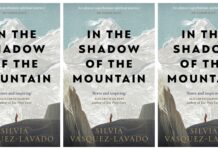NICOLA COUNDORAKIS thinks there is something about those who don’t fit into normative discourses such as LGBT+, and people living with disabilities, being able to use their identities to force real social change.
I am a twenty-something, queer*, neuro-atypical feminist womxn. My identity politics are now out of the way and my biases apparent.
But in a time of turmoil, I don’t feel I have been involved enough in the recent, trailblazing protest movements in South Africa. I do sign the occasional Change.org petition, call out misogynistic behaviour on Facebook (when I have the stomach) and chastise unintentionally racist family members when they say something problematic. However, I have not marched in a single protest over the past two years – the last being People’s Pride 2014 where I painted a cardboard sign that I still have on the back seat of my car, just in case of impromptu activism.
There’s a pervasive discomfort amongst many socially active citizens, surrounding race and class polarisation in Pride marches. This seems to be especially pronounced in deeply divided communities, such as those living and working in Cape Town and Joburg’s hubs. I also often feel that my non-normative self is unwelcome in activist spaces, aside from explicitly feminist, queer and disabled ones.
These sentiments are echoed by *Michelle Franks and Melanie Pieterkosky, two womxn who also identify as a queer, disabled feminists. “I don’t feel safe. I don’t feel included [in protest spaces], despite my many privileges,” Franks confided in me. Yet the #MustFall movements illustrated the need for people who have traditionally been ostracised due to their “deviant” identities and who therefore have the potential to disrupt the status quo.
Your average apolitical South African probably isn’t aware that the momentum behind #RhodesMustFall, followed by #FeesMustFall movements, was due to people realising that this is a moment of real change. In contrast to the wishy-washy Rainbow Nation rhetoric, many of the protestors have been South Africans who are often left out of political conversations: the disenfranchised and sneered-at queers, disabled folk and feminists.
The media managed to exclude most of these people from the snappy protest news headlines and 1976-esque photographs. One of the queer groups that emerged from the protests, The UCT Trans Collective, actively campaigned against being excluded from the #RhodesMustFall’s one-year anniversary photographic exhibition by staging a naked demonstration and smearing the photographs with red paint. It was only once this radical act had taken place that the #RhodesMustFall movement acknowledged the involvement of queer people and has since committed to intersectionality.
Similarly, pandemonium ensued amongst Johannesburg-based #FeesMustFall supporters when an offshoot of cishet (read: cisgender, heterosexual) men decided to hold a private strategy meeting without notifying any of the key womxn and queer folk (despite these very people being at forefront of the movement). When this secretive group was confronted by those left out, there was an altercation in which one of the men strangled and pushed a discontented womxn to the ground.
Following this incident, there was an uproar about the treatment of womxn and queer folk throughout the #MustFall peak periods. It unveiled the “deeply fractured†nature of the movement, in the words of a Daily Vox reporter.
Whilst I can’t claim to have a noticeable physical disability (rather mine is a hindrance to my everyday mental functioning which meant I couldn’t always deal with large crowds and the threat of police retaliation), Franks explained to me that many physically disabled students did participate in the protest activity. But because this work was behind the scenes, it wasn’t highlighted by the media.
It is important that people recognise the support of social media activism, financial contributions and help with necessary co-ordination such as feeding schemes, says Franks. Feminists and queer people have had to take charge and make their voices heard, so perhaps the disabled should also resort to radical means to make the world sit up and take notice.
The strategy of using Othered bodies to bring about social change is not a new one. To the contrary, one can find various examples throughout history where people then deemed deviant used their self-assurance to introduce shock tactics. Recall the group One In Nine which performed a “die-in” at the 2012 Joburg Pride March. Originally a radical space of protest and questioning norms, the march had morphed into nothing more than a homonormative reason for Gauteng’s white gay crowd to dress up and parade around Rosebank. One in Nine’s black, queer members totally disrupted the magenta, glittering floats by lying down in the middle of the road with political messages and made as though they were dead.
If their intention was repugnance, it was certainly a success as Joburg Priders took to slandering them as well as throwing things. Since that day and the anti-racist backlash that followed, Joburg Pride lost many of its supporters and has been forced to rebrand and reschedule several of their events. The public had grown exasperated with their exclusionary attitude. But had One In Nine not disrupted the routine four years ago, Joburg Pride would today still be a glorified Pink Party.
There is something about those who don’t fit into normative discourses being able to use their identities to force real social change. “The personal is political,” say intersectional feminists and, in this vein, anyone who is interested in shaking up the system should welcome all kinds of bodies to join in the revolution. Being disruptive is, however, not enough. There is a resounding call for civil society to form local and global networks, with the intention of galvanising and strengthening social reform. LGBT+ and disabled movements require both grassroots and political representation to this end. The South African Constitution, heralded for being among the most progressive in the world, should, therefore be translated into policies, strategies and advocacy with an intersectional feminist lens that exhibit a commitment to include LGBT+ and disabled people.
*Author’s note: I use “queer” here as an umbrella term to encompass the full spectrum of identities that traditionally fall under LGBT+. The term “womxn” is used since it is a more progressive term that draws attention to the prejudice, discrimination and difficulties experienced by both cis and trans womxn whilst avoiding the inclusion of “men” as a suffix.
*Editors’ note: The name of one of the respondents has been changed to protect her identity.


![Sandile-Ndelu-Trans-collective [slider]](https://www.thedailyvox.co.za/wp-content/uploads/2016/03/Sandile-Ndelu-Trans-collective-1.jpg)







